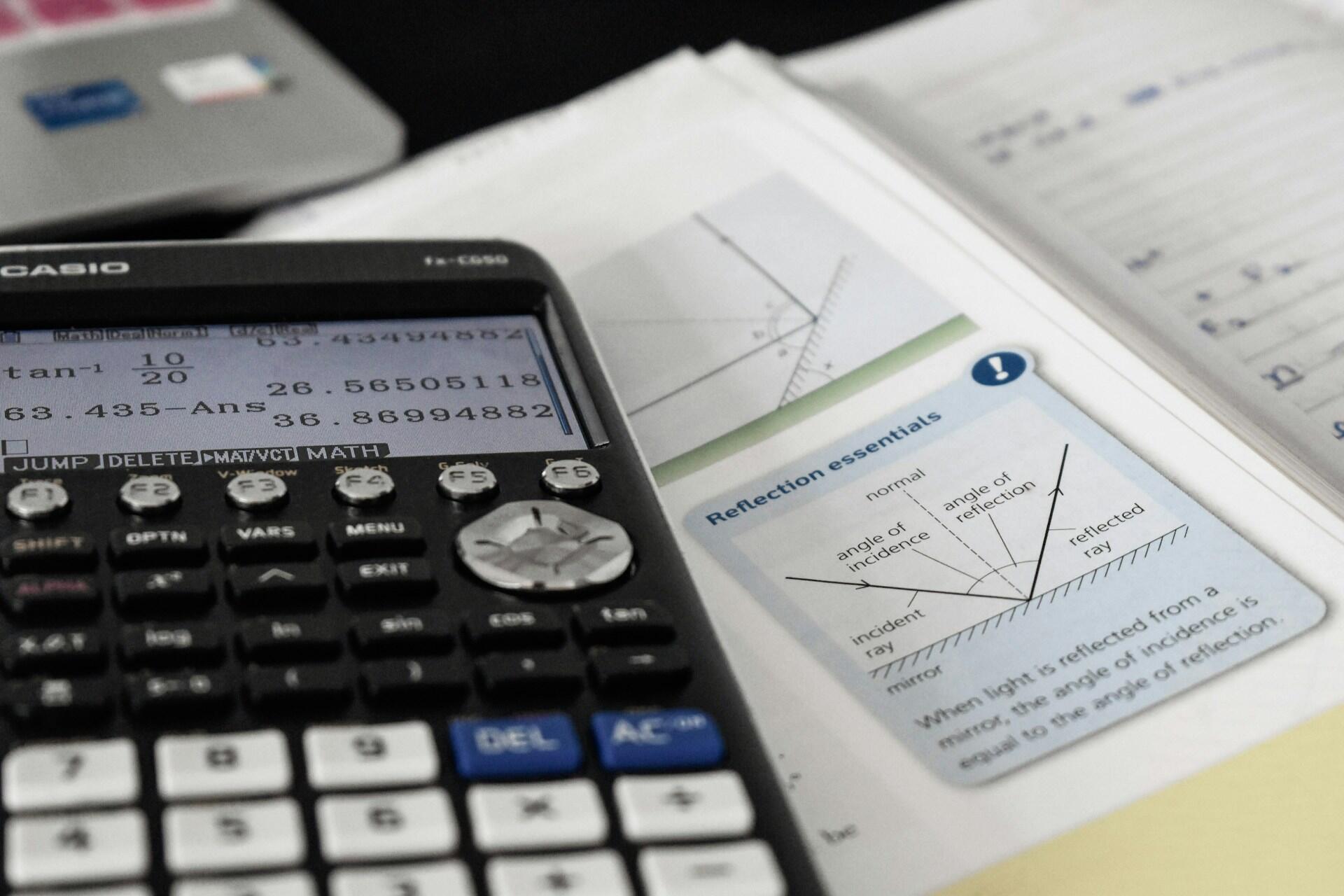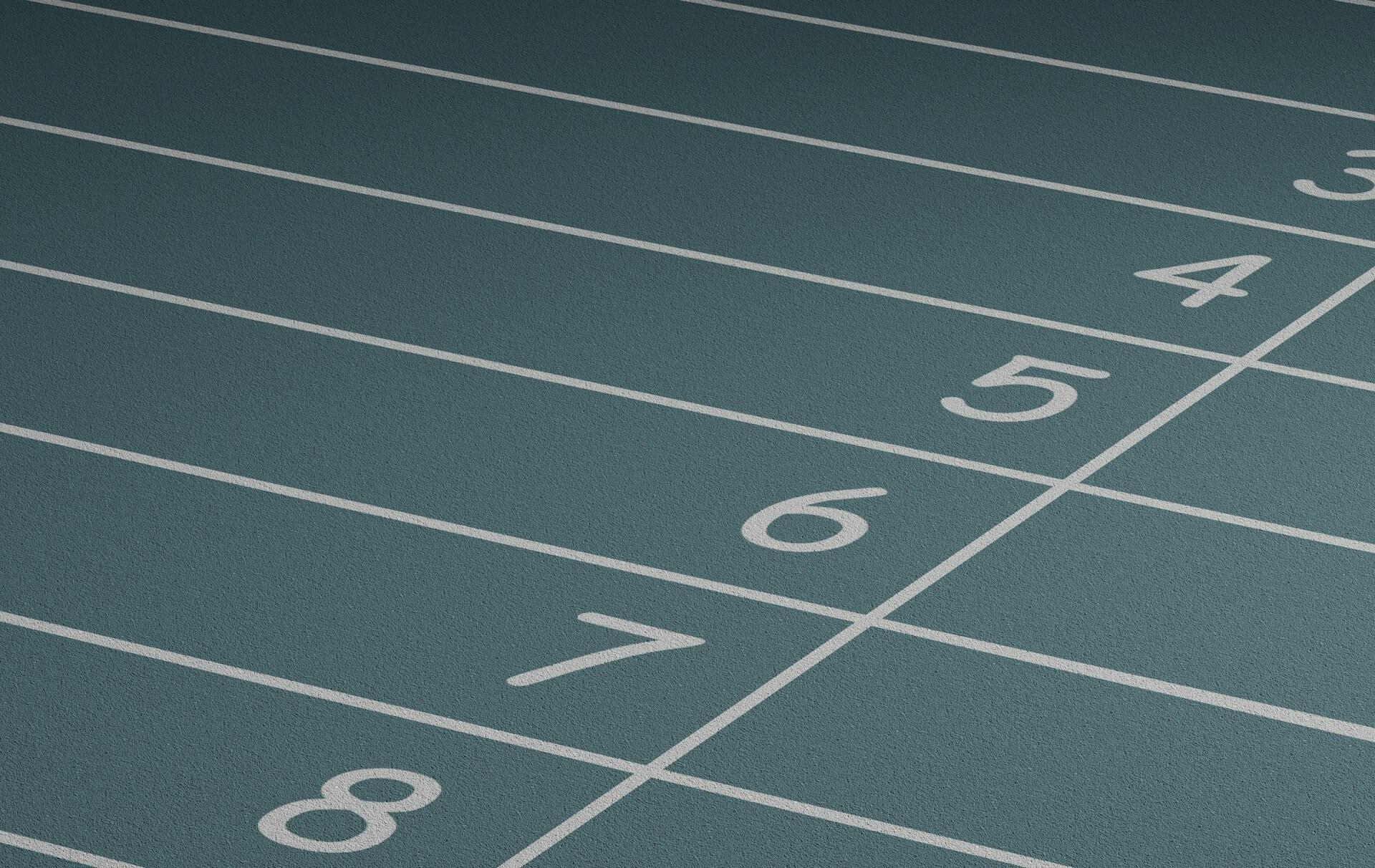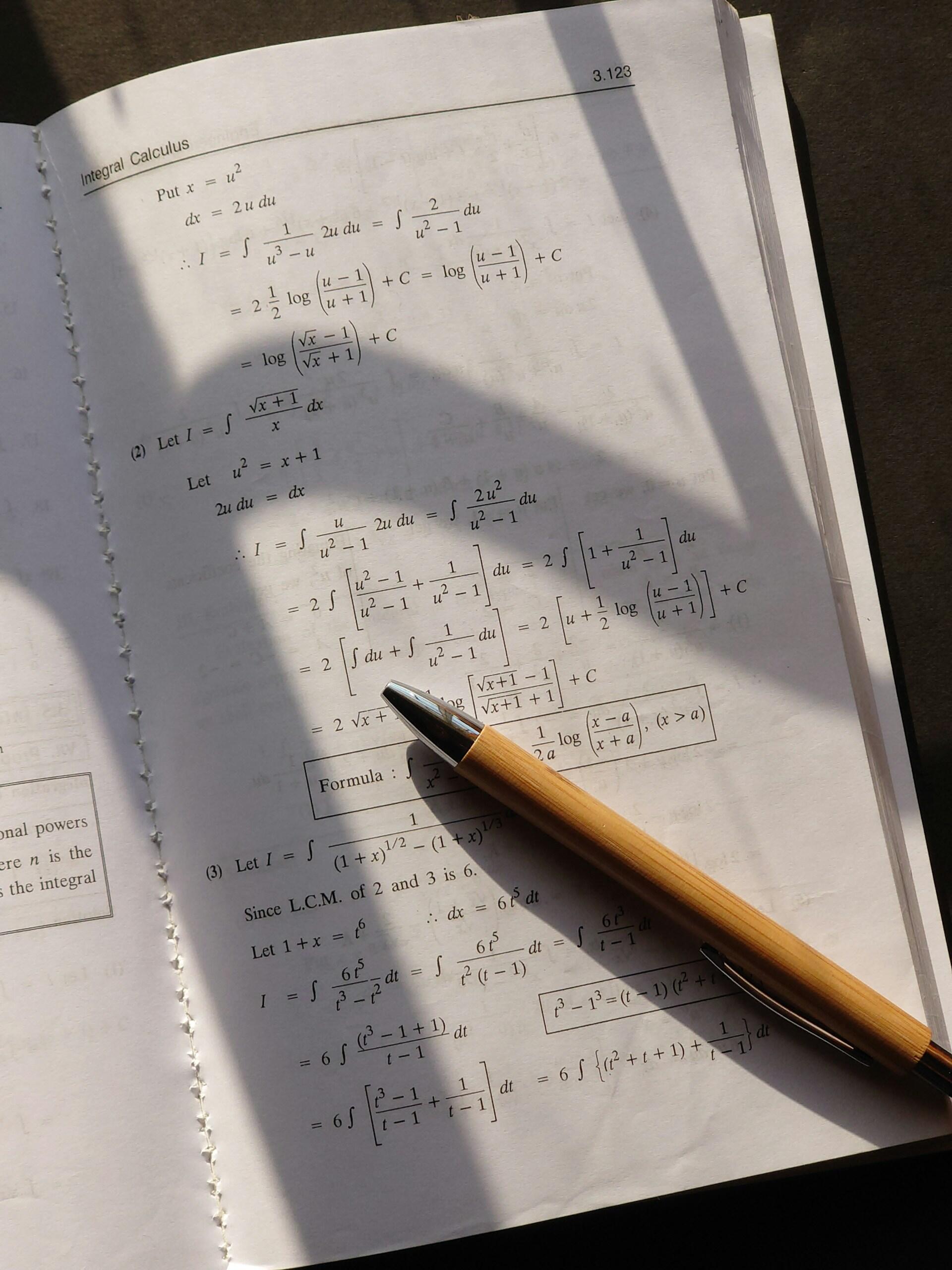GCSE Maths, alongside GCSE English, is a core subject, and students often focus on grade boundaries to understand what counts as a pass. For example, Edexcel’s 2024 Foundation Maths required 147/240 marks for a Grade 4 (pass) and 182/240 for a Grade 5 (strong pass).
Grade boundaries don’t change dramatically year to year—expect only a small variation, around ±7 marks. Below, we’ve compiled the GCSE Maths grade boundaries for all major exam boards, so you can see what students need to achieve to pass.
| 📈Grade | 🔝Maximum marks | 👩🎓Edexel 2023 Higher Maths | 📅Edexel 2024 Higher Maths | 🧮 Edexcel 2025 | 👨🎓AQA 2023 Higher Maths | 📅AQA 2024 Higher Maths | 🧾 AQA 2025 |
|---|---|---|---|---|---|---|---|
| 9 | 240 | 203 | 197 | 217 | 218 | 219 | 219 |
| 8 | 240 | 174 | 167 | 186 | 186 | 191 | 191 |
| 7 | 240 | 145 | 137 | 156 | 158 | 163 | 164 |
| 6 | 240 | 112 | 105 | 121 | 125 | 129 | 130 |
Key Takeaways
- Grade 4 = standard pass, Grade 5 = solid/good pass.
- Marks vary slightly each year depending on exam difficulty.
- Expect minor changes of about ±7 marks year-to-year.
- Boundaries differ by board and tier (Foundation vs Higher).
- Tables below show all major exam boards for quick reference.

An Overview of Maths GCSE Grade Boundaries
Before looking at the tables, it’s important to understand that GCSE Maths grade boundaries vary slightly between exam boards and tiers (Foundation vs Higher). They set the minimum marks needed for each grade, ensuring fairness when papers differ in difficulty. Below, you can see the most recent boundaries across all major boards.
AQA GCSE Maths Grade Boundaries 2020-2025
| Year | Series | Max Marks | 9 | 8 | 7 | 6 | 5 | 4 |
|---|---|---|---|---|---|---|---|---|
| 2025 | Jun | 240 | 219 | 191 | 164 | 130 | 96 | 63 |
| 2024 | Nov | 240 | 212 | 184 | 157 | 125 | 93 | 61 |
| 2024 | Jun | 240 | 219 | 191 | 163 | 129 | 95 | 61 |
| 2023 | Nov | 240 | 206 | 178 | 150 | 114 | 79 | 44 |
| 2023 | Jun | 240 | 214 | 186 | 158 | 125 | 92 | 59 |
| 2022 | Nov | 240 | 201 | 172 | 143 | 111 | 79 | 48 |
| 2022 | Jun | 240 | 214 | 185 | 156 | 121 | 86 | 51 |
| 2021 | Nov | 240 | 192 | 155 | 119 | 90 | 62 | 34 |
| 2020 | Nov | 240 | 194 | 159 | 124 | 95 | 67 | 39 |
Get a holistic view of AQA grade boundaries, along with details and explanations, straight from the AQA website.
Edexcel Maths Grade Boundaries 2025
| Year | Series | Max Marks | 9 | 8 | 7 | 6 | 5 | 4 |
|---|---|---|---|---|---|---|---|---|
| 2025 | Jun | 240 | 217 | 186 | 156 | 121 | 87 | 53 |
| 2024 | Nov | 240 | 200 | 170 | 140 | 107 | 75 | 43 |
| 2024 | Jun | 240 | 197 | 167 | 137 | 105 | 73 | 42 |
| 2023 | Nov | 240 | 203 | 174 | 145 | 112 | 79 | 47 |
| 2023 | Jun | 240 | 203 | 174 | 145 | 112 | 79 | 47 |
| 2022 | Nov | 240 | 194 | 165 | 137 | 104 | 71 | 38 |
| 2022 | Jun | 240 | 194 | 165 | 137 | 104 | 71 | 38 |
| 2021 | Nov | 240 | 187 | 154 | 122 | 93 | 65 | 37 |
| 2020 | Nov | 240 | 189 | 157 | 126 | 96 | 66 | 37 |
Be sure to bookmark Edexcel's grade boundaries page for future reference, or to look at past grade boundaries.
OCR Maths Grade Boundaries GCSE
| Year | Series | Max Marks | 9 | 8 | 7 | 6 | 5 | 4 |
|---|---|---|---|---|---|---|---|---|
| 2025 | Jun | 300 | 258 | 212 | 166 | 126 | 86 | 47 |
| 2024 | Nov | 300 | 246 | 199 | 152 | 118 | 84 | 51 |
| 2024 | Jun | 300 | 245 | 195 | 145 | 110 | 76 | 42 |
| 2023 | Nov | 300 | 244 | 199 | 154 | 120 | 87 | 54 |
| 2023 | Jun | 300 | 242 | 193 | 144 | 109 | 74 | 39 |
| 2022 | Nov | 300 | 244 | 202 | 160 | 123 | 86 | 49 |
| 2022 | Jun | 300 | 242 | 200 | 158 | 120 | 82 | 45 |
| 2021 | Nov | 300 | 239 | 193 | 147 | 115 | 83 | 51 |
| 2020 | Nov | 300 | 241 | 195 | 150 | 117 | 84 | 52 |
OCR also publishes its grade boundaries on its website a few days after the grades are released.
Eduqas GCSE Maths Grade Boundaries - Higher
| Year | Series | Max Marks | 9 | 8 | 7 | 6 | 5 | 4 |
|---|---|---|---|---|---|---|---|---|
| 2025 | Jun | 240 | 196 | 155 | 115 | 85 | 56 | 27 |
| 2024 | Nov | 240 | 191 | 151 | 111 | 84 | 57 | 31 |
| 2024 | Jun | 240 | 191 | 151 | 111 | 84 | 57 | 30 |
| 2023 | Nov | 240 | 187 | 152 | 117 | 88 | 60 | 32 |
| 2023 | Jun | 240 | 187 | 152 | 117 | 88 | 60 | 32 |
| 2022 | Nov | 240 | 170 | 136 | 103 | 77 | 52 | 27 |
| 2022 | Jun | 240 | 170 | 136 | 103 | 77 | 52 | 27 |
| 2021 | Nov | 240 | 173 | 139 | 106 | 80 | 55 | 30 |
| 2020 | Nov | 240 | 173 | 139 | 105 | 79 | 54 | 29 |
Eduqas GCSE Maths Grade Boundaries - Foundation
| Year | Series | Max Marks | 5 | 4 | 3 | 2 | 1 |
|---|---|---|---|---|---|---|---|
| 2025 | Jun | 240 | 141 | 111 | 81 | 51 | 21 |
| 2024 | Nov | 240 | 138 | 109 | 80 | 52 | 24 |
| 2024 | Jun | 240 | 132 | 104 | 76 | 49 | 22 |
| 2023 | Nov | 240 | 147 | 116 | 85 | 55 | 25 |
| 2023 | Jun | 240 | 133 | 105 | 77 | 49 | 21 |
| 2022 | Nov | 240 | 125 | 99 | 73 | 47 | 21 |
| 2022 | Jun | 240 | 125 | 99 | 73 | 47 | 21 |
| 2021 | Nov | 240 | 125 | 99 | 73 | 48 | 23 |
| 2020 | Nov | 240 | 128 | 101 | 74 | 48 | 22 |
Eduqas Higher and Foundation maths grade boundaries appear on the same webpage.
Understanding the GCSE Maths Grading System
In 2017, the Department for Education (DfE) worked with the exam boards to change the GCSE grading system3.
1. Broad boundaries create disadvantages for students.
2. The change was about setting grade boundaries fairly.
3. It was about assuring the most unbiased access to learning opportunities for all.

The old system was very limiting, as it didn't permit fine distinctions between students' marks.
For instance, a student scoring a 92 or 93 on an exam might earn the same A as a student who scored 97 or 98.
This table shows how hard the old grading system made it to set grade boundaries. It also points out how the old system seemed to expect students to do poorly.
| 🧓Old grading system | 👶new grading system |
|---|---|
| A* - A | 9, 8, 7 |
| B - C | 6, 5, 4 |
| D, E, F, G | 3, 2, 1 |
| U | U |
Note the four grades in the lowest boundary, using the old system. Contrast them with the top two grade ranges, which have only two grades apiece. The unfairness was baked right into the system!
The chart shows the new grading system's three grade ranges, each with three grades per range. Such an even distribution allows exam boards to spread all test-taking students' marks more fairly and evenly.
Takeaways from the New Grading Structure
Understanding Edexcel Grade Boundaries
Grade boundaries vary depending on the exam paper's structure and difficulty level. Students' performance matters, as well.
Grade boundaries for Edexcel Maths GCSE are set by the examination board after each exam series.
Exams usually take place in June and November, although exam dates will vary. Be sure to check your schedule well in advance!

Edexcel grade boundaries determine the minimum marks required to achieve each grade1. These range from Grade 1 (the lowest) to Grade 9 (the highest).
After marking all the papers, the exam board spreads those marks across the range of grades.
It tries to make sure each grade has roughly the same number of marks.
Exam boards shift grade boundaries to include more (or fewer) marks, as needed.
With all of this taken into account, Edexcel then uses statistics to distribute all the test takers' marks across the grade range. This is why grade boundaries change with each exam series.
Edexcel publishes the grade boundaries after marking the exams and finalising the results. You can find every exam cycle's grade boundaries on Edexcel's website a few days after you receive your results. Other official channels release them, as well.

What is the Pass Mark for GCSE Maths?
In GCSE Maths, a Grade 4 is officially considered a standard pass, while a Grade 5 is classified as a strong or “good” pass.
For Maths GCSE, a 4 is a pass, while a 5 delivers a 'solid' pass. Those two grades mark the halfway point between 1-9, so it makes sense that they draw the line between passing and failing.
These grades are part of the 1–9 grading scale introduced in 2017, which replaced the old A*–G system. The scale is designed to give more differentiation across students’ abilities, with Grade 1 being the lowest achievable grade and Grade 9 representing exceptional performance.

The distinction between Grades 4 and 5 is significant. A Grade 4 indicates that a student has met the minimum expected level of proficiency in Maths to progress in further education or enter the workplace.
A Grade 5, on the other hand, shows that a student has a solid understanding of key mathematical concepts, able to apply them confidently to a range of problems.
These two grades effectively mark the middle of the scale—they act as the dividing line between passing and failing. Students achieving below a Grade 4 are considered to have not met the minimum standard.
Those achieving Grade 4 or above have demonstrated sufficient competence to continue their studies or meet general qualifications requirements.
Understanding these thresholds is important for students, parents, and educators alike, as they influence post-GCSE pathways, including further study, college admission, and career opportunities.
How Many Marks To Pass GCSE Maths Foundation?
To pass GCSE Foundation Maths, you typically need around 40-60% to achieve a grade 4, which is considered a standard pass. However, grade boundaries vary each year depending on the exam's difficulty. If you're taking the Higher Tier, the pass mark is generally lower, often around 10-25%. A strong pass in GCSE Maths is usually around 70%, but this can fluctuate annually.
As you can see, most of the students fell into the passing range, and even more qualified for a solid pass. You could achieve that by studying with a maths tutor for just a few weeks.
How Many Marks Is a 4 in GCSE Maths Foundation?
In GCSE Maths Foundation tier, a Grade 4 is considered a standard pass. The exact number of raw marks required to achieve it can vary slightly each exam series because exam boards adjust grade boundaries depending on the difficulty of the paper. However, recent exam series provide a clear guide:
| Exam Board | Approximate Marks for Grade 4 (Foundation) | Max Marks |
|---|---|---|
| AQA | 39–41 | 240 |
| Edexcel | 37–43 | 240 |
| OCR | 38–45 | 240 |
| Eduqas/WJEC | 27–31 | 240 |
- These marks represent the minimum raw score needed to achieve a Grade 4.
- Achieving a Grade 5 requires a slightly higher mark, often in the 53–56 range.
- Students scoring below this threshold (typically Grade 3 or lower) are considered not to have passed.
Why the range?
The variation exists because exam boards adjust boundaries each year to account for the difficulty of that year’s papers. A slightly harder exam will have slightly lower mark thresholds to ensure fairness.
The COVID era marked the most noticeable change in grading since 2017, when the exam boards adopted the new grading system.
What Grade Is 80 Percent in GCSE?
Scoring 80% in your GCSE exams will typically secure at least a grade 8, and in some cases, it may even result in a grade 9, depending on the exam board and grade boundaries for that year. This reflects a high level of achievement, demonstrating strong subject knowledge and application. For GCSE Maths, an 80% score would generally earn a grade 9 with Edexcel and Eduqas.
Reaching it is a high bar. Looking at our table in the previous section, we must conclude that even the students who achieved Grade 9 fell short of the '80' mark. Still, those high scores suggest that those students benefited from maths tutoring and lots of hard work.

Your new understanding of AQA and Edexcel grade boundaries for GCSE mathematics2 must leave you puzzled. How can you achieve high marks and compete for a Grade 9 in your upcoming GCSE maths exam?
How Many Marks Out of 80 To Pass Maths Foundation?
Here are the Grade 4 (standard pass) boundaries for Maths Foundation GCSE in 2025, across the major exam boards, based on latest available data. These are the raw marks you needed out of the full Foundation paper (often out of 240, except OCR which is out of 300).
| Exam Board | Total Marks (Foundation) | Grade 4 Boundary (2025) |
|---|---|---|
| Edexcel | 240 | 144 |
| AQA | 240 | 160 |
| OCR | 300 | 129 |
Naturally, the benchmark is higher for how many marks out of 80 to pass maths higher, namely 22 marks out of 80 per paper. This is according to Edexcel's latest grade boundaries1.

Understanding Maths Grade Boundaries
As mentioned in the previous section, Edexcel Maths GCSE grade boundaries4 use statistical analysis to calculate each grade.

The boundaries are set to ensure a fair distribution of marks across the grade range.
Let's say a handful of stellar maths students earn the maximum number of points on their exams. At the other end of the scale, we find a dozen students who earned the lowest possible scores.
The rest of the cohort falls somewhere along the spectrum between those two extremes.
We needn't think too hard to realise that the stellar students will have their choice of future learning opportunities. Everyone else will have to scramble along.
More importantly, nobody - least of all university admissions boards, will know where any applicant stands within their cohort.
How are GCSE Grade Boundaries Defined?
Edexcel adjusts its grade boundaries3 to signal where each student sits along that spectrum. This practice helps democratise grading by breaking the student cohort into roughly the same-sized groups. It ensures a fairer distribution of desirable university places.
Should you worry about grade boundaries?
Logic - and your maths tutor, say 'No!', because GCSE Maths grade boundaries change with every exam.
You won't know where your grade boundaries lie until after you get your results. Focus on mastering maths concepts, rather than fretting over boundaries. That is the better use of your productive energy.
The GCSE Maths Curriculum
At the GCSE level you can expect multiplication and division, addition and subtraction, counting, fractions, and basic algebra concepts. These topics make up the first half of your course.
Remembering the order of BIDMAS will serve you well during these lessons.
Once you've refreshed your memory on these topics, the GCSE Maths course will address more advanced concepts.
Your GCSE Maths course follows a particular structure. To earn the GCSE grades you want, you mustn't skip lessons or homework assignments.
Reaching the Maths GCSE pass mark will demonstrate that you have a wide range of mathematical abilities. Universities and future employers prize these skills, albeit for different reasons.

Falling behind will make the rest of the course difficult for you. It will also add to any exam anxiety you might feel comes time to sit your papers. That's the #1 reason why so many students revise with a maths tutor.
Focusing on grade boundaries adds to the tension you feel around exam time.
It's best to focus instead on your maths skills and abilities, which pave the way to higher boundaries.
Your future university considers solid maths skills an academic advantage. Employers contend that they are transferable skills that adapt well in any workplace.
How Is the Course Set?
The change in the structure of the GCSE maths exam reflects contemporary students' aptitude, based on their coursework and class scores.

It presents a mix of easy and more difficult maths problems. More challenging questions present a higher standard for pupils to reach for.
The grading system for the GCSE mathematics course has changed dramatically. However, the exam format has not undergone such a change.
Your Maths course still covers the same topics, so you don’t need to worry about the curriculum affecting your scores. You only need to consider how they will reflect on your scorecard.
The curriculum for GCSE mathematics is still designed to give students a holistic understanding of mathematics.
This, in turn, prepares them for their exam. The best way for students to reach these learning goals is to study the most up-to-date curriculum.
Your mathematics syllabus addresses all the skills learners need to score well on exams.
Its structure and content are meant to help students succeed in their future professions.
The Department for Education (DoF) set the course curriculum according to market requirements, and current skills demand. That means organisations study gaps in the workforce to determine which skills are most needed. These and other considerations are the reasons for Maths GCSE curriculum updates.
They are also among the reasons for Edexcel's exam updates. If you're preparing to sit your GCSE Maths in June, you might have downloaded past papers over the winter holidays.
You must know that those Christmas maths problems you did won't feature on your upcoming paper. That's another reason Edexcel updates its papers for every exam.

Preparing for GCSE Maths
You have countless different methods to choose from when prepararing for exams. Few strategies are as effective as revising with a personal tutor who follows these steps.
*When sitting exams, you have a specific amount of time to complete each paper. Mock exams help you hone your time management skills, so you won't leave any questions unanswered. In fact, you should budget a few minutes to review your answers before turning your papers in.
Of course, this strategy is not exclusive to preparing for mathematics exams. It extends to every subject you study at school. Exam practice is especially helpful if you are unfamiliar with exams, which is likely the case for GCSE applicants in 2024.
GCSE Grade Boundaries 2025: Sources and Further Reading
- Edexcel, Pearson. “Grade Boundaries | Pearson Qualifications.” Pearson.com, 2024, qualifications.pearson.com/en/support/support-topics/results-certification/grade-boundaries.html?Qualification-Family=GCSE. Accessed 8 Jan. 2026.
- AQA. “Grade Boundaries.” Aqa.org.uk, 2019, www.aqa.org.uk/exams-administration/results-days/grade-boundaries. Accessed 8 Jan. 2026.
- Christian, Beki. “GCSE Grade Boundaries 2021: The New Grading System Explained.” Third Space Learning, 23 Dec. 2021, thirdspacelearning.com/blog/gcse-grade-boundaries/. Accessed 8 Jan. 2026.
- Edumentors. “Pearson Edexcel Grade Boundaries - Edumentors.” Edumentors, 30 Apr. 2025, edumentors.co.uk/blog/pearson-edexcel-grade-boundaries/. Accessed 8 Jan. 2026.
Summarise with AI:











on my maths gcse i got 210, but i got failed and put as a grade 3, but others got 170 and got a grade 4 have they marked me wrong? do i need to get remarked?
I wanted to now I have been a long time to study
Please help me with the home language
Is isizulu please help me with all my sabjut
1.math
2.LO
3.n.s.t
4.ems
5home
language
6.mecenicl teach /
Civil engineering
7.engish
8.ss
Hi there, thanks for reaching out! It’s great that you’re ready to get back into studying. If you’re looking for help with subjects like Maths, English, or even Mechanical and Civil Engineering, Superprof has tutors who can support you. You can browse tutors near you or online at http://www.superprof.co.uk.